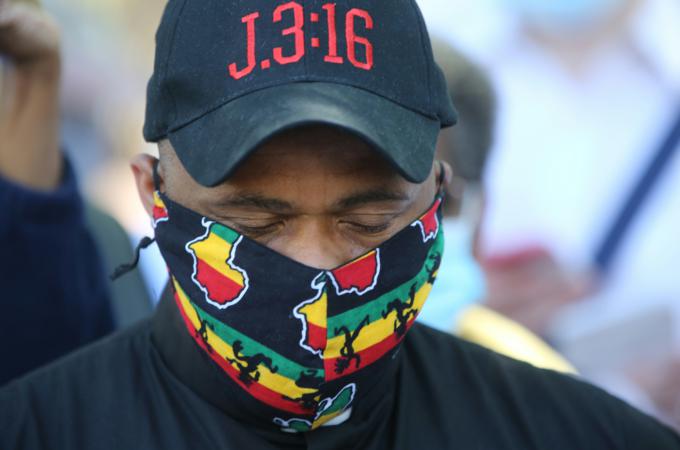Listen and love
George Floyd's death was a terrible injustice, one that immediately unified the entire nation in horror and righteous indignation. The condemnation of what occurred in Minneapolis was universal. People of all political persuasions, all races, all religions, all regions, all levels of education, all ages, and all economic and social classes agreed that no American should ever be mistreated the way Mr. Floyd was. So what happened? Why is there so much rancor and division now?
The answers are complicated. First, we live in an era of deep mistrust. We no longer give each other the benefit of the doubt or assume the best of others. Instead, more and more of us seem bent on looking at each other with suspicion. I can't remember a time when people were more judgmental and unforgiving. And, we're quick to take offense. Too many of us now consider opinions with which we disagree reasons to avoid relationships or end them. We are way too invested in the opinions we hold and count on others to confirm -- and not challenge -- them.
When I was a child in the late 1960s and '70s, the saying of the day was this: "I may not agree with what you say, but I will defend to the death your right to say it." Under that principle, the ACLU defended the Constitutional rights of numerous unpopular groups, including Nazis who planned to march in Skokie, Illinois. We were expected to treat other people with respect, regardless of how reprehensible their views might be. Rational argument and civil debate were seen as the tools of a free and democratic society because using them built up democracy and extended the liberty we all hope to possess.
But now, we cancel rather than debate and level accusations instead of offering compelling arguments. We don't think twice about judging someone else's heart but fail to look inside our own. Every kind of behavior can be justified, not on the basis of what it is but simply by who is doing it. That produces a world in which injustice can be hidden behind a badge and behind a protest sign.
The time for a fruitful conversation about racism -- and what we can do about it -- is long overdue, but I think it may be even harder to hold now than it's been before. Why? Because it seems we can't take "yes" for an answer. We've lost the ability to focus our energy on something we can all agree on and build a broader consensus from there.
A purposeful conversation, one that may actually accomplish something, must begin with agreement on the problem. That should be the easy part, but we haven't managed to do it yet. Instead, we've upped the ante, multiplied the number of litmus tests, and hitched the discussion to pre-packaged agendas of particular "solutions." For example, I can say Black Lives Matter without hesitation and mean it. But if I'm told that sincere opposition to racial injustice requires defunding police, abandoning free enterprise for Marxism, or voting only for a particular candidate or party?
Of course, listening with an open heart also involves listening with an open mind. When it comes to the racial divide, we have a long history of talking over each other and past each other. I fear that doing otherwise will take more discipline than most of us have these days. The hard things always do.
In the weeks and months ahead, we may all hear a lot of things we don't want to -- or think we should have to -- hear. And in the midst of it all, the Gospel will still call us to love our neighbors and our enemies. Love demands that we attend to every person's God-given dignity, regardless of what he thinks or how she sees the world. Love invites us to honor every person's experience, even if it is radically different from our own. Love does not take advantage of a person or exploit a situation for one's own agenda. Love is the Christ-like sacrificial gift of self in which is found the power to save the world.
- Jaymie Stuart Wolfe is a Catholic convert, wife, and mother of eight. Inspired by the spirituality of St. Francis de Sales, she is an author, speaker, and musician, and serves as a senior editor at Ave Maria Press. Find Jaymie on Facebook or follow her on Twitter @YouFeedThem.



















